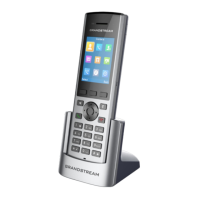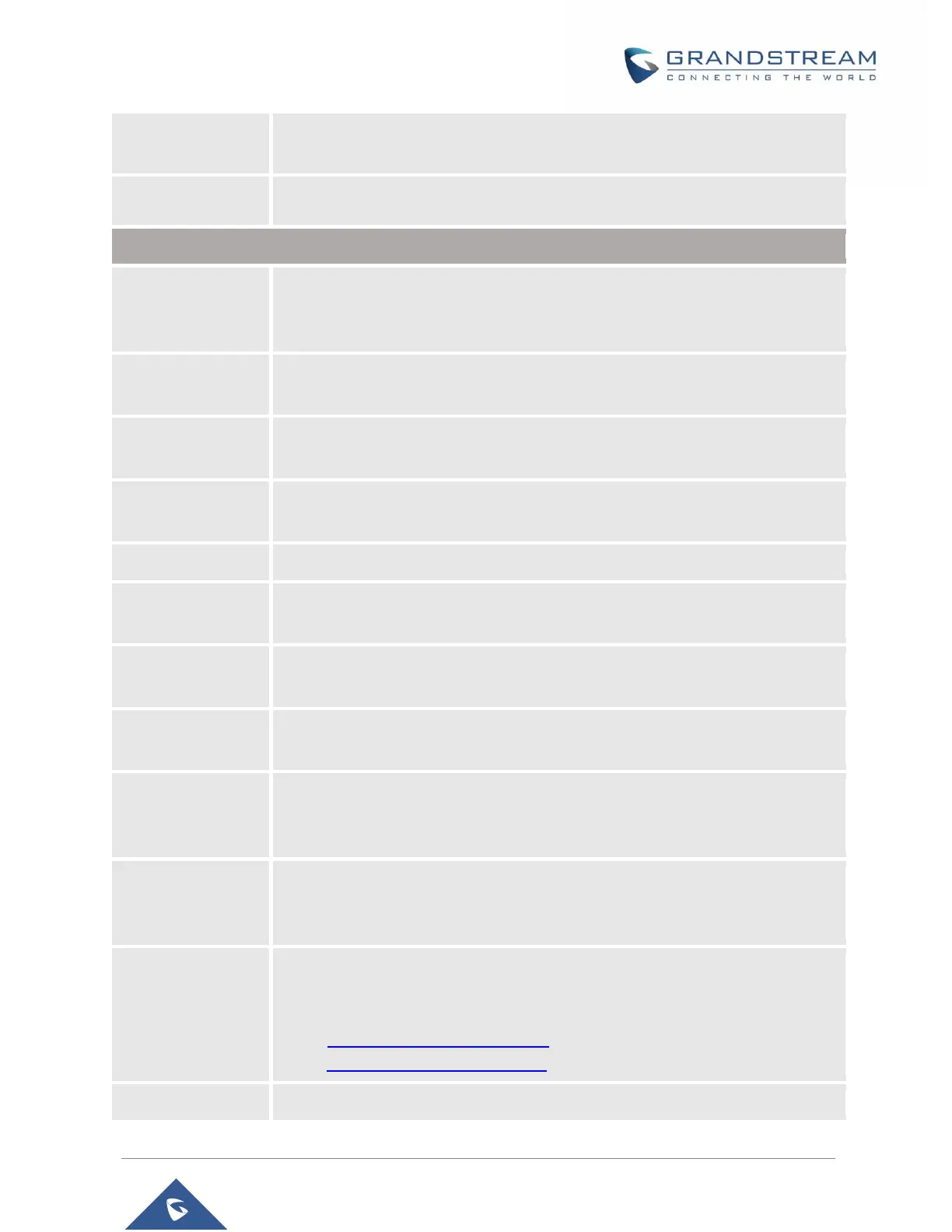DP752/DP730/DP722 Administration Guide
Version 1.0.11.4
Uses above DTMF order without negotiation. Default is No.
Defines payload type for DTMF using RFC2833.
Configures vocoders in a preference list (up to 8 preferred vocoders) that will be
included with same order in SDP message. Vocoder types are G.711 A-/U-law,
G.722, G.726-32, G.723, G.729, iLBC and OPUS
Transmits a specific number of voice frames per packet. Default is 2; increases to
10/20/32/64 for G711/G726/G723/other codecs respectively.
Operates at specified encoding rate for G.723 vocoder. Available encoding rates
are 6.3kbps or 5.3kbps. Default is 6.3kbps.
Defines G726-32 packing mode (“ITU” or “IETF”). Default is ITU.
Specifies iLBC packet frame size (20ms or 30ms). Default is 20ms.
Determines payload type for iLBC. The valid range is between 96 and 127.
Default is 97.
Disable OPUS
stereo in SDP
Disables OPUS stereo attribute in SDP header. Default is No.
Determines OPUS payload type. The valid range is between 96 and 127.
Default is 125.
Use First Matching
Vocoder in 200OK
SDP
Includes only the first matching vocoder in its 200OK response, otherwise it will
include all matching vocoders in same order received in INVITE. Default is No.
Callee Codec
Negotiation Priority
When callee, whose codecs are given priority in Codecs negotiation, local or
remote. Set it Remote will use remote codec priority, or local will use local priority.
Default is Remote.
Selects SRTP mode to use (“Disabled”, “Enabled but not forced”, or “Enabled and
forced”). Default is Disabled.
It uses SDP security description to exchange key. Please refer to:
SDES: https://tools.ietf.org/html/rfc4568
SRTP: https://tools.ietf.org/html/rfc3711
Adds crypto life time header to SRTP packets. Default is Yes.

